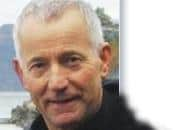Meeting birth parents is a highly charged event for the adopted – Dr Gary Clapton


Two years ago we published the results of our study into the long-term outcomes of reunions between adopted people and their birth parents and other relatives (10 Years After: The Long-Term Outcomes of Adoption Reunions, 2018). Exploring one of the most highly-charged events in the lives of adopted people, the accounts in 10 Years After, go beyond the first days and months of contact with each other and focus on how lives have settled and continued together (or not) after meeting with each other. Present circumstances notwithstanding, it is well to be reminded of the highs and lows of meetings between adopted people and their birth relatives.
Thirty-seven out of the forty adopted people who had met their birth mother continued onwards after their first meeting and most were still in touch after ten years or more in some cases. Some were going to weddings of their birth brothers and sisters, but in some cases distance prevented closer contact: ‘As we live over 500 miles apart it is not possible to see each other on a regular basis, and we are both pretty bad at writing. Over the years my birth mother has been to Scotland three times and we have been down to visit her three times’.
Advertisement
Hide AdAdvertisement
Hide AdA few of these adoption reunions petered out or dwindled to cards at Christmas. Even in these instances, there were some positives to be taken, in the group of seven adopted people who told us about meeting their brothers and sisters, one woman said that ‘Even though it’s only Christmas cards, it’s nice to know he’s there. I always thought I was an only child so knowing I have a brother is comforting’. About meeting her birth sister, another woman told us ‘I waited until my adoptive mum and dad died before trying to get in touch, may have left it too late. Did not ‘hit it off’ with sister and her family. No bad feelings just different circles. Glad I did at least make contact, found info about my birth mother. Absolutely no regrets finding out’.


One completely positive account was that of Lorna’s who met her birth father after we found that he’d registered with us on the Adoption Contact Register for Scotland: ‘I can never thank Birthlink enough for putting me in touch with my birth family. It undoubtedly changed the course of my life back in 2000. I know myself so much better now from knowing my father and grandparents. Being able to recognise familial traits has meant so much to me…My adoptive parents gave me a wonderful childhood and both of them were supportive of my search for my birth family. Before I started my search I used to say ‘I was adopted’. However once the journey started and the emotions began to flow I realised that adoption for me is not something in the past tense, I will always be adopted, it’s not something that finishes’. Lorna ended by remarking on the issue of loss, which goes to the heart of adoption. ‘With the highs of “reunion” also comes deep feeling of loss at the life you didn’t have with the people you were meant to be with. It took many years for my birth father and me to have a secure and loving relationship’.
Any long view of adoption reunions will inevitably include many usual milestones people’s lives. Births, marriages and deaths are always with us however, adoption brings an added dimension to these events. In adoption, deaths can matter an even greater deal. Sometimes searching for birth family connections has been postponed until adoptive parents have passed away for fear of upsetting them. This study has heard from adopted people that their search has been successful in finding their family of origin but too late for contact with their birth mother.
Most of those in our study, adopted people, birth mothers, birth fathers and other relatives such as brothers and sisters were pleased having searched and made contact or having been found.
Connections felt in the bone are made real in reunions and, for want of a better phrase, people become more whole – summed up by one woman who refuses to see her adoption as an event of the past and now regards being adopted as part of her identity. In the end isn’t it all about our need for identity?
Dr Gary Clapton, Reader in Social Work and Programme Director for BSc (Hons) in Social Work, The University of Edinburgh.
Comments
Want to join the conversation? Please or to comment on this article.